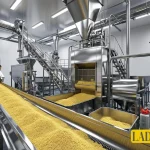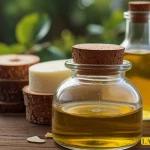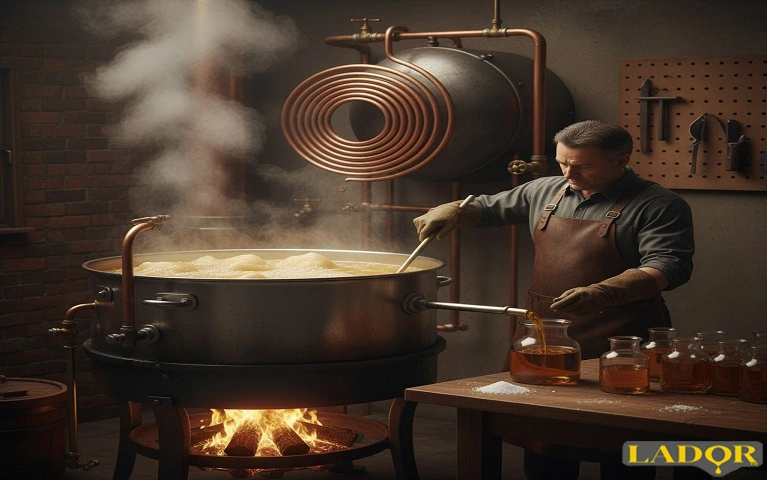

Beef tallow oil is widely used in many applied chemical industries. Tallow fatty acid industrial tallow is an animal fat mainly obtained from the fat of the bodily tissues of ruminant animals, especially cattle and sheep, after slaughter. This substance is produced by the process of heating (Rendering) the raw animal fat and separating the impurities. At room temperature, tallow is solid, has a waxy texture, and a color ranging from white to yellowish or cream.
Tallow oil is essentially a triglyceride, meaning it is composed of one glycerol molecule and three fatty acid molecules. The prominent feature of tallow is its high percentage of saturated fatty acids, which gives it a hard and stable structure. Historically, due to its abundance and specific physical and chemical properties, tallow fatty acid has long been used in human life, especially in the manufacture of candles and soap, and today it is also considered a key component in the Oleochemical Industry.
Tallow oil has unique chemical properties that make it an excellent choice in many chemical processes. The applications of tallow oil in chemical industries include: Production of protective materials, Soap making (saponification), Production of basic materials for manufacturing plastics.
The main chemical compositions include two parts:

The application of tallow is not limited to its raw form; rather, its chemical derivatives, known as tallow fatty acids, are utilized across a wide range of oleochemical industries.
Tallow is one of the most important raw materials in soap making, accounting for approximately 75% of the fats used in this industry. In the process of saponification, tallow triglycerides react with an alkali (such as sodium hydroxide) to produce sodium salts of fatty acids (which is soap) and glycerol. Soaps made with tallow are hard, durable, and have a creamy lather. Furthermore, tallow and its derivatives are also used in the manufacture of industrial detergents and institutional cleaners.
Triglyceride (Tallow)+3NaOH→Glycerol+3Sodium Salt of Fatty Acid (Soap)
Tallow oil, especially its lower grades, is a vital source for the production of biodiesel (biofuel) through the process of transesterification. In this process, triglycerides react with an alcohol (such as methanol) in the presence of a catalyst to produce Fatty Acid Methyl Esters (FAME), which are the main component of biodiesel.
Tallow fatty acids are used in the manufacture of creams, lotions, and some personal care products due to their emollient (softening) and moisturizing properties. Also, esters and fatty alcohols derived from tallow are employed as emulsifiers and stabilizers in these products.

Aala oil Sepahan Company, operating under the brand name Lador, is one of the prominent and active producers in Iran. The main focus of Aala oil Sepahan is on producing products that serve as rich energy sources in various industries, especially in animal feed, poultry, and chemical industries.
This company is active in the production of various raw materials and feed additives for livestock and poultry, as well as animal and industrial oils and powders, including: Bovine Tallow Oil, Bone Oil, Hydrogenated Chicken Oil, Tallow Oil for Grease Making, Tallow Oil for cosmetic, hygienic, And countless other products.
Tallow oil, as a natural source rich in saturated triglycerides, is a high-value basic chemical substance. Its specific chemical composition, primarily including stearic and palmitic acids, imparts important properties such as hardness, stability, and a high melting point.
These characteristics make tallow an essential raw material in the oleochemical industries, particularly in: Soap making, Biodiesel production, Specialized industrial chemicals. For consultation and price inquiry, please contact Ladorfat consultants.